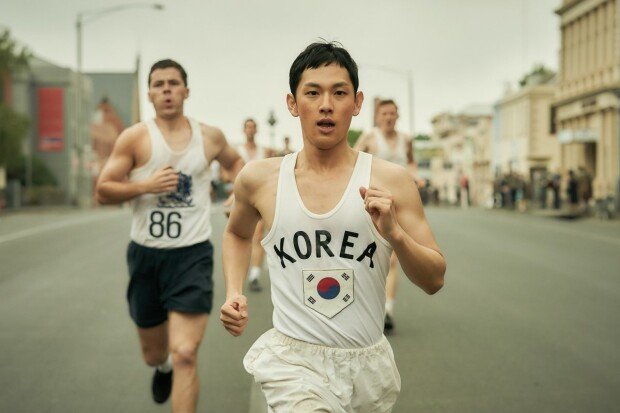Meaning of the nation
Meaning of the nation
Posted August. 14, 2024 07:51,
Updated August. 14, 2024 07:51

“Is that such a big deal? Frankly speaking, what has the country done for you?” says a local coordinator who appears in the movie 1947 Boston, which is based on the true story of Korean marathon runner Seo Yoon-bok, who won the 1947 Boston International Marathon. The line is spoken to the Korean delegate group led by Son Ki-jeong who gets upset at the association's statement that they must run in uniforms bearing the American flag, after barely managing to arrive in Boston with Kang. Though their country has done little for them, Son still insists on wearing the Korean flag, so that his colleagues would not have to suffer the pain that he previously did when he rose to the podium wearing the Japanese flag. Of course, this scene is not based on historical fact. Seo participated in wearing a uniform with the American flag and the Korean flag side by side, and when he stood on the podium to receive the award, the association permitted Seo to wear a separate uniform with only the Korean flag. Through dramatized fiction, the movie raises the question of the ‘meaning of country’ to the individual.
Nowadays, people value individual values over patriotic values. Back in 1947, when TVs were rare, the entire nation gathered in front of the radio to tune into Seo's broadcasting, but people have grown less enthusiastic about the Olympic games despite the relative abundance of media.
Despite less fervor, however, the Korean team’s performance in the Paris Olympics garnered much public attention, winning more than double the targeted goal of five gold medals. Gone are the days when individuals followed nation’s calling, and while patriotic values are increasingly diluted, the individual identity created by the nation cannot be denied. Imagine the suffering that Son Ki-jeong bore wearing the Japanese flag at the podium and you can realize how valuable it is that we can cheer for the Korean team in the Olympic games.
Headline News
- Joint investigation headquarters asks Yoon to appear at the investigation office
- KDIC colonel: Cable ties and hoods to control NEC staff were prepared
- Results of real estate development diverged by accessibility to Gangnam
- New budget proposal reflecting Trump’s demand rejected
- Son Heung-min scores winning corner kick







